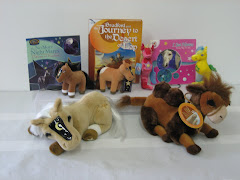The wild Mustangs of Corolla fates are now unceratin in the near future after over 500 years of survival on the Banks of Corolla...
From Recent article...
Corolla Wild Horses Face Uncertain Future
Posted: May. 28, 2007
Updated: May. 30, 2007
http://www.wral.com/news/local/story/1450404/
"COROLLA — Wild Spanish Mustangs were dropped off on the Outer Banks centuries ago when the Spanish planned to colonize the islands. Today, a new management plan calls for thinning the herd from more than 100 down to just 60, and the horses face an uncertain future.
The wild horses of Corolla, also known as bankers, have survived in the Outer Banks for nearly 500 years. Now they face their toughest hurdle. The beaches where the Spanish Mustangs landed so long ago are now filling up with tourists.
“I’ve worked with horses a good part of my life,” said Steve Rogers of the Corolla Wild Horse Fund. “I’d say their biggest danger is us -- people.”
Rogers’ job is to educate the masses. He spends his summer days handing out brochures on the beaches and intercepting people trying to get to close to the animals.
“I just want to give you some information about the horses,” Rogers told a group of tourists. “You have to stay at least 50 feet away at all times and not feed them."
"Most of the folks who come here don’t know the rules," Rogers said.
Karen McCalpin, who runs the Corolla Wild Horse Fund, the group charged by the county to oversee and protect the horses, said the animals do not belong to anybody.
“They’re nobody’s horses,” she said. “They don’t belong to the Corolla Wild Horse Fund. They don’t belong to the county.”
McCalpin routinely has to remove injured horses from the herd. The injuries are often caused by humans.
“We’ve had six that were intentionally shot,” McCalpin said.
The horses roam 12,000 acres or 11 miles of the island. Much of that land is privately owned and those owners continue to build.
“There are about 300 houses in that area, but there are 3,080 platted lots.” McCalpin said. “And certainly if all those were to be built out, I don’t know how long people and wild horses can co-exist. Probably not another five centuries unless we do more careful thinking about how we develop the rest of the other banks.”
Rogers and McCalpin want to see horses, houses and humans all get along. They are glad to see people admiring the horses, but they do not want to see people love them to death.
To Read the full article: http://www.wral.com/news/local/story/1450404/
Reporter: Bill Leslie
Photographer: Richard Adkins
Web Editor: Kamal Wallace
Friday, June 01, 2007
Subscribe to:
Posts (Atom)

